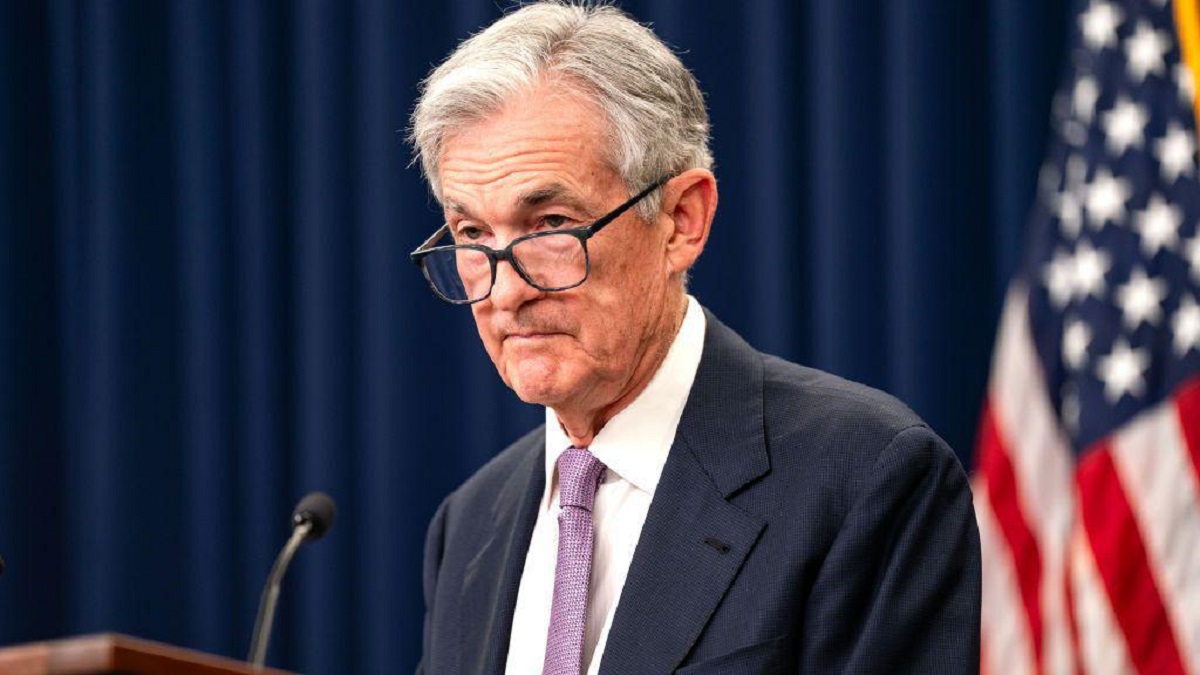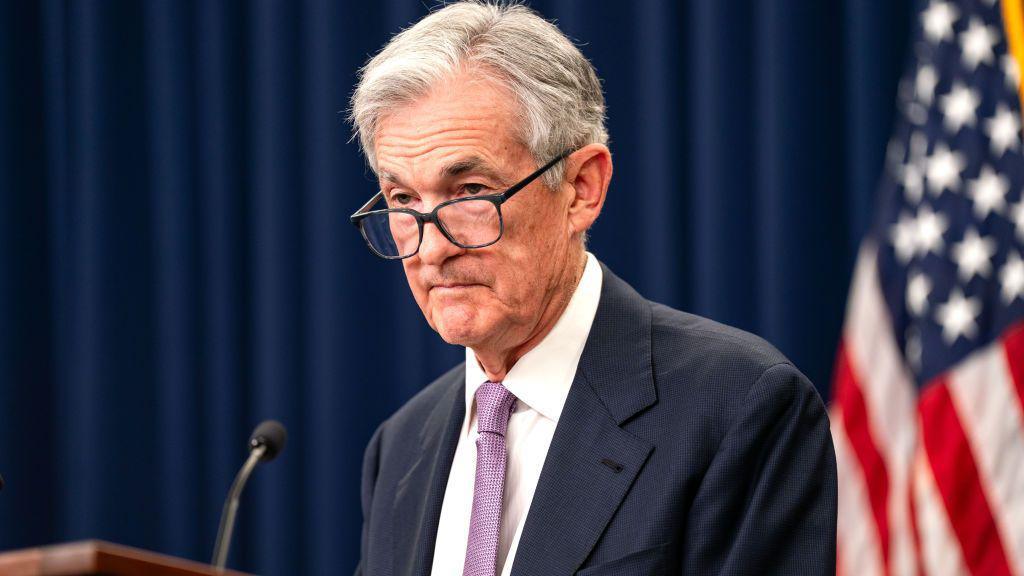Trump Slams Fed Chair Powell Again, Yet Powell Gets Congress Supports And International Backing
In a move that has become emblematic of his presidency, Donald Trump has once again targeted Federal Reserve Chair Jerome Powell with sharp criticism following the central bank’s decision to maintain

In a move that has become emblematic of his presidency, Donald Trump has once again targeted Federal Reserve Chair Jerome Powell with sharp criticism following the central bank’s decision to maintain steady interest rates.
The latest salvo, delivered via Trump’s Truth Social platform, reflects the ongoing tension between the White House and the Fed, a cornerstone of U.S. economic policy traditionally shielded from political influence. As financial markets grapple with the uncertainty of Trump’s tariff-driven trade policies, Powell’s cautious stance has drawn both domestic support and international backing, highlighting the stakes in this high-profile clash.

Trump’s Latest Outburst
Trump’s frustration erupted after the Federal Reserve opted to keep interest rates unchanged at a range of 4.25% to 4.5% on Wednesday. Taking to social media, the president branded Powell a “FOOL” who “doesn’t have a clue,” while touting what he described as a robust economy with “virtually NO INFLATION” and “Tariff Money Pouring Into the U.S.” In a characteristically colorful exchange with reporters at the White House, Trump likened speaking with Powell to “talking to a wall” and urged investors to buy stocks, predicting the U.S. economy would soar “like a rocket ship.” These remarks follow months of mixed signals from Trump, who has oscillated between threatening to oust Powell and retracting such claims, most recently assuring that he has no intention of removing the Fed Chair before his term ends in 2026.
The president’s ire stems from his belief that lower interest rates would mitigate the economic fallout from his aggressive trade policies, including a 10% baseline tariff on nearly all countries, a 145% levy on China, and additional tariffs on steel, aluminum, vehicles, and parts.
However, Powell has consistently rebuffed such pressure, emphasizing that Fed decisions are guided by economic data rather than political demands. The central bank’s latest statement pointed to the risks of higher inflation and unemployment posed by Trump’s tariff war, a stance that has only deepened the rift.
Congressional Support for Powell
Despite Trump’s relentless criticism, Jerome Powell enjoys robust and widespread backing on Capitol Hill, a testament to the bipartisan recognition of the Federal Reserve’s critical role in maintaining economic stability. Lawmakers from both parties have rallied to defend Powell, emphasizing the importance of the Fed’s independence from political interference. Oklahoma Representative Frank Lucas, a senior member of the House Financial Services Committee, has praised Powell as a “stabilizing force” during a period of economic uncertainty, arguing that his steady leadership is essential for navigating the challenges posed by Trump’s trade policies. Similarly, North Dakota Senator Kevin Cramer, a Republican ally of Trump on many issues, has lauded Powell’s “admirable” performance, particularly under the intense scrutiny of the president’s public attacks. Cramer recently expressed relief at Trump’s retreat from threats to fire Powell, noting, “The last thing markets need is another shakeup at the Fed.”
This bipartisan support extends beyond individual endorsements to a broader consensus on Capitol Hill. Senator Elizabeth Warren, a progressive Democrat from Massachusetts, has been a vocal advocate for Powell, asserting, “The Fed must remain free from political interference to effectively manage the economy for all Americans, not just the White House’s agenda.”
On the Republican side, Senator Pat Toomey of Pennsylvania, a staunch defender of free markets, has warned that “any attempt to politicize the central bank would be disastrous for our financial system and erode confidence both at home and abroad.” Even Senator Mitt Romney of Utah, a frequent critic of Trump, has weighed in, calling Powell “a capable leader whose independence must be preserved.”
These voices collectively underscore the gravity of Trump’s attacks and the potential consequences for the U.S. economy if the Fed’s autonomy were compromised. Analysts have noted that Powell’s post-decision remarks serve as a subtle yet firm rebuke of Trump’s trade strategy, reinforcing his commitment to data-driven governance over political expediency.
An International Echo
The debate over central bank autonomy has not been confined to the United States; it has resonated globally, with international leaders and institutions weighing in on Trump’s attacks on Powell.
Bank of Canada Governor Tiff Macklem has emerged as a prominent voice in this chorus, offering a staunch defense of Powell during a recent news conference in Ottawa. Macklem described central bank independence as “sacrosanct,” arguing that it has “served Canadians very well and similarly in other countries by ensuring monetary policy remains credible and effective.” His remarks were prompted by a report warning that a prolonged U.S.-China trade war, exacerbated by Trump’s tariffs, could destabilize Canada’s economy, leaving “permanent impacts” on global trade networks.
Macklem emphasized the need for central banks to maintain agility and credibility in the face of such disruptions, while also urging Canada to diversify its trade relationships beyond its southern neighbor to mitigate the fallout from Trump’s unpredictable policy shifts.
The international reactions highlight the global stakes of the Trump-Powell standoff, positioning Powell’s leadership as a linchpin in the broader effort to preserve the integrity of monetary policy worldwide. The international support not only bolsters Powell’s position but also amplifies the significance of his commitment to independence amid domestic political turbulence.
Economic Implications
The Fed’s decision to hold rates steady reflects a cautious approach to an economy unsettled by Trump’s trade strategy. Powell has warned that tariffs could simultaneously reignite inflation and weaken growth, a dual threat that complicates the central bank’s mandate to balance price stability and employment. Markets, already jittery from Trump’s tariff announcements and reversals, have responded with volatility, amplifying the stakes of this standoff. As Powell navigates these challenges with support from Congress and international peers, the resilience of the Fed’s independence remains a focal point in an increasingly turbulent economic landscape.
Disclaimer: The views in this article are from the original Creator and do not represent the views or position of Hawk Insight. The content of the article is for reference, communication and learning only, and does not constitute investment advice. If it involves copyright issues, please contact us for deletion.